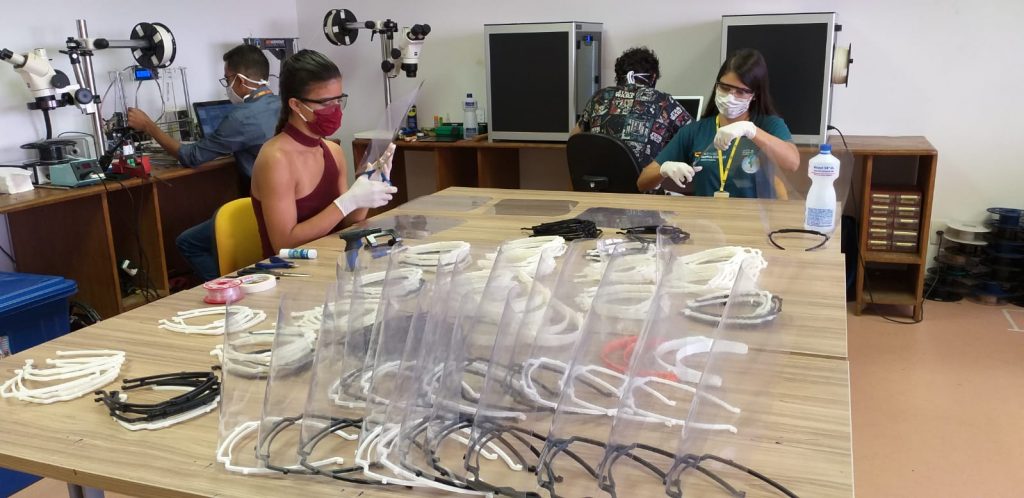
The Santos Dumont Institute (ISD), a Social Organization linked to the Ministry of Education, restarted on Wednesday (06) the production of 'shield masks' for donation to hospitals with patients infected by the new coronavirus in Rio Grande do Norte.
The production line was set up at the end of March by professors and master's students in neuroengineering from the Institute's research center – the Edmond and Lily Safra International Institute of Neuroscience, based in Macaíba – and had stopped last week due to lack of material- cousin. The new start was given after donations.
“We were out of acetate, a material used on the front of the equipment,” said the Institute’s research coordinator, Edgard Morya, in report published this Thursday (07) in the print and digital editions of the newspaper Tribuna do Norte.
Donations
Two hundred sheets of acetate, according to Moya, were donated by the orthopedic and medical-hospital products company Ortorio, enabling the production of 200 new masks since yesterday. Another donation of 100 sheets of acetate and 20 kg of filaments for 3D printing (which would be like the printer cartridge) is also expected from the Norte-Rio-Grandense Research and Culture Foundation (Funpec) for another 600 masks.
The materials should boost production, which in just over a month reached a total of 1,180 pieces of equipment. The current production rate is approximately 100 pieces/day.
The products have so far reached 49 hospitals, urgent and emergency services and maternity wards in RN, distributed among 17 municipalities.
Technologies
The report also reveals that the Institute submitted a project to the Ministry of Science and Technology in search of resources to expand the production of shield masks and create new devices necessary to combat the disease.
One of the projects is the creation of a type of protective cylinder for use on the heads of patients hospitalized with Covid-19.
The product, made of acetate, was developed by master's students and would be a cheaper and easier-to-use option than the acrylic boxes that Brazilian hospitals have begun to adopt for care.
Like the boxes, the cylinders would be positioned around the patients' heads to reduce the risk of environmental contamination and increase the level of protection for professionals. According to Morya, the cylindrical shape, however, would facilitate use and cleaning. The estimated cost per piece would also be about 10 times lower.
“In our project we calculated a cost of around R$ 50 per piece”, says the researcher. “Those currently used reach R$ 400 or R$ 500 per piece.”
At the same time, students and researchers are also developing mechanical respirators, essential for patients with acute shortness of breath, and are awaiting the arrival of sensors necessary to carry out the first tests in the laboratory. The sensors, lacking in Brazil, will come from China.
“The students made a request to carry out the tests. Once the system works, the knowledge will be made available to the market”, added the researcher.
SERVICE
ISD receives donations of acetate, 3D printer filaments or cash to purchase raw materials. More information is available on the website: https://institutosantosdumont.org.br/covid-19/
Text: Renata Moura / Ascom – ISD, with information from Tribuna do Norte.
Photo – Woman reads a report about ISD in the newspaper Tribuna do Norte: Renata Moura / Ascom – ISD
Communication Office
comunicacao@isd.org.br
(84) 99416-1880
Santos Dumont Institute (ISD)
Social organization that maintains ties with the Ministry of Education (MEC) and whose mission is to promote education for life, forming citizens through integrated teaching, research and extension actions and to contribute to a fairer and more humane transformation of the Brazilian social reality.














